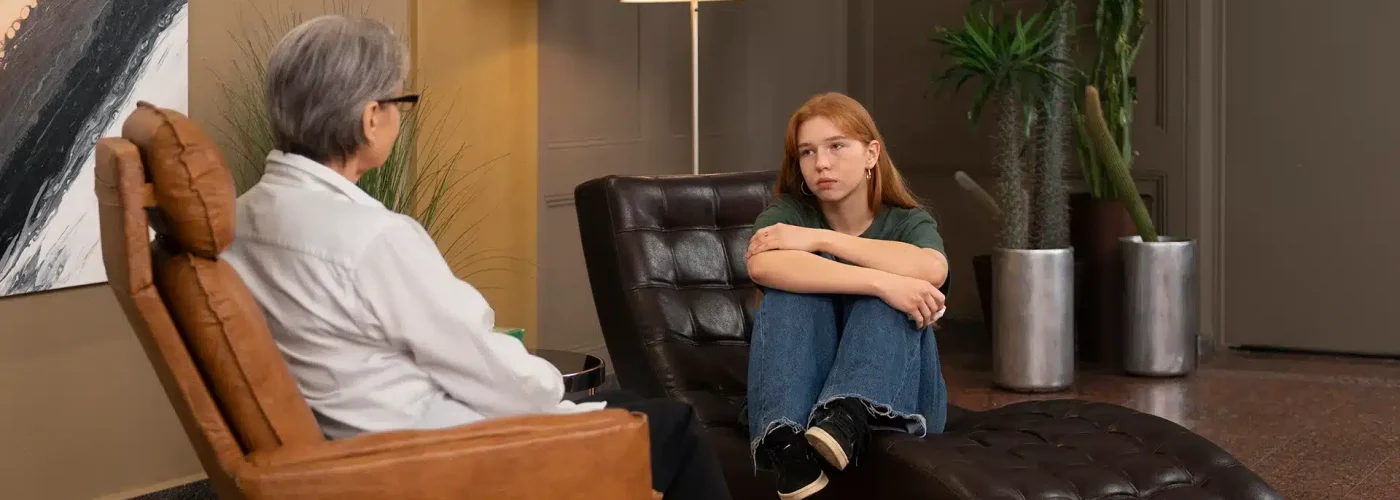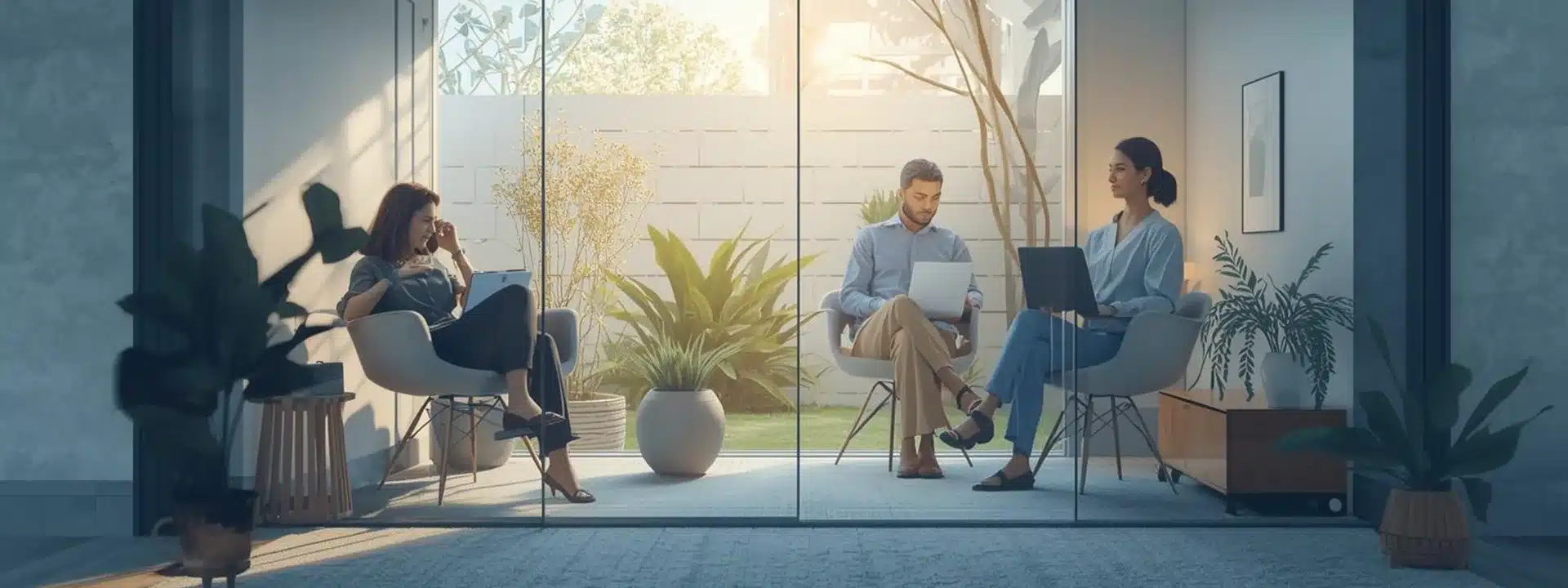Sometimes life gets really hard. You wake up and don’t want to face the day. Every day tasks become impossible. Or maybe you feel worried all the time. You may feel like something bad is about to happen. These feelings can be scary, and you might wonder if you need more help than just talking to a therapist once a week.
At Alter Behavioral Health, we understand that asking for help takes courage, and we’re here to support you every step of the way.
If you’re wondering whether it’s time to consider an adult psychiatric treatment center, you’re at the right place.
What Is an Adult Psychiatric Treatment Center?
It’s a safe place where people go to get help with serious mental health problems. Think of it like a hospital, but specifically for your mind and emotions, not for a broken bone or the flu.
These centers provide care 24 hours a day, seven days a week. You stay at the facility while getting treatment, which means you’re in a safe environment where trained professionals can help you feel better. The staff includes doctors, therapists, nurses, and counselors who work together to create a plan tailored to your needs.
At Alter Behavioral Health, we help you from the moment you arrive all the way through your recovery journey and beyond. Our residential facilities in Southern California provide a home-like setting where you can focus on healing.
Benefits of Inpatient Psychiatric Care for Adults
Choosing to stay at a psychiatric treatment center comes with many benefits. Here’s what makes inpatient care better than seeing a therapist once a week:
Round-the-clock support: Someone is always there to help you whenever you need. We’re there to listen when you’re having a hard time and need someone to talk to at 2 a.m.
Safe environment: You’re away from stressful situations at home or work. This gives your mind time to rest and heal.
Intensive treatment: Instead of one therapy session per week, you get multiple therapy sessions every day. This helps you progress faster.
Medical care: Doctors can monitor your condition and adjust medications if needed. They can spot problems early and fix them.
Complete focus on getting better: Your only job is to focus on feeling better. You don’t have to worry about work, school, or other responsibilities.
We provide personalized treatment plans using evidence-based therapies at our facilities.
Mental Health Conditions Treated at Psychiatric Facilities
Adult psychiatric treatment centers help people with many different mental health challenges. Some of the most common conditions include:
- Depression
- Anxiety disorders
- Bipolar disorder
- Post-traumatic stress disorder (PTSD)
- Schizophrenia
- Eating disorders
- Substance abuse problems
At Alter Behavioral Health, our expert clinical team treats adults with complex mental health conditions and co-occurring disorders.
How to Know When You Need Professional Psychiatric Help
Here are five important signs to watch for:
Sign 1: You’re thinking about hurting yourself or others
If you have thoughts about suicide, you need help right away. These thoughts are dangerous, and your brain needs professional medical care. Similarly, if you’re thinking about hurting other people, it’s time to get help immediately.
At Alter Behavioural Health, we offer Cognitive Behavioral Therapy (CBT). Research conducted in 2024 showed that people who got Brief CBT had a 41% lower risk of suicide attempts than those who got another treatment.
Sign 2: You can’t do normal daily activities
Are you missing work or school? Can’t get out of bed? Haven’t showered in days? When your mental health stops you from doing basic things like eating or sleeping, it’s a sign you need more support than outpatient therapy can provide.
Sign 3: Outpatient therapy isn’t working
Maybe you’ve been seeing a therapist every week for months, but you’re not getting better. Or perhaps you keep having the same crisis over and over. When regular therapy isn’t enough, inpatient care can give you the intensive help you need.
Sign 4: Your symptoms are getting worse despite treatment
If you’re taking medication and going to therapy but feeling worse, something needs to change. An adult psychiatric treatment center can provide closer monitoring and adjust your treatment plan more quickly.
Sign 5: Your family and friends are worried
Sometimes the people who love us can see problems we can’t see ourselves. If multiple people in your life are telling you they’re concerned, listening to them is a good idea. They might notice changes in your behavior that you don’t.
What to Expect During Your Stay at a Psychiatric Treatment Facility
Walking into a psychiatric treatment center for the first time can feel overwhelming. But knowing what to expect can help you relax.
- Warm Welcome and Assessment: You’ll initially meet with staff members who will ask you questions about how you’re feeling and what brought you to treatment. They’ll create a safe, personalized treatment plan just for you.
- Structured Daily Routine: Your days will include a balance of activities, therapies, and relaxation to support healing and stability.
- Individual and Group Therapy: You’ll have one-on-one sessions with a therapist to explore your emotions and sessions with peers who are facing similar challenges.
- Medication Management: You’ll meet with a psychiatrist who can prescribe or adjust medications if needed. Nurses and staff will check on you regularly to make sure you’re safe and comfortable.
Difference Between Psychiatric Hospitals and Treatment Centers
While both psychiatric treatment centers and psychiatric hospitals provide mental health care, there are some important differences.
Psychiatric Hospitals
Focus on short-term crisis stabilization. You go there when you’re in immediate danger, and they work to stabilize you quickly, often in just a few days. The environment is more hospital-like.
Psychiatric Treatment Centres
Psychiatric treatment centers provide longer-term care in a more comfortable, home-like setting. We focus not just on making you stable but on helping you truly heal and develop skills for lasting recovery. You stay longer and receive more intensive therapy.
At our facilities, we limit the number of clients so everyone gets individual attention from our team. Research conducted in 2024 shows that using personalized plans leads to better treatment outcomes than one-size-fits-all approaches.
Insurance Coverage for Adult Psychiatric Treatment Programs
Many people hesitate to reach out because they assume treatment is out of reach. The good news is that many insurance plans cover mental health treatment at psychiatric facilities.
We accept most major insurance providers at Alter Behavioral Health. Your insurance company may pay for most or all of your treatment costs.
Our admissions team will help you verify your insurance coverage. We work directly with insurance companies to make things easier for you.
Take the First Step Toward Healing Today
Deciding to get help is one of the bravest things you’ll ever do. At Alter Behavioral Health, we’ve helped over 2,000 clients find their way back to health and happiness.If any of the five signs sound like you, now is the time to reach out. Call us today to speak confidentially with an admissions counselor. We’re here to help you get better.
FAQs
1. How long do people usually stay at an adult psychiatric treatment center?
Most people remain typically 30-45 days, depending on their individual needs and progress in treatment.
2. Can my family visit me during treatment?
Yes. We encourage family involvement as family support is an important part of recovery.
3. What happens after I leave the treatment center?
We create an aftercare plan with you before you leave. This might include outpatient therapy, support groups, or step-down programs to help you transition.
4. Do you treat people with both mental health and substance abuse problems?
Yes. We specialize in treating co-occurring disorders, which means we can help with mental health and substance abuse at the same time.
5. Is treatment really confidential?
Yes. Everything you share is private and protected. We never share your information without your written permission.



